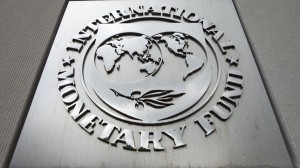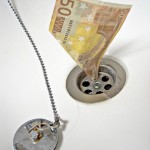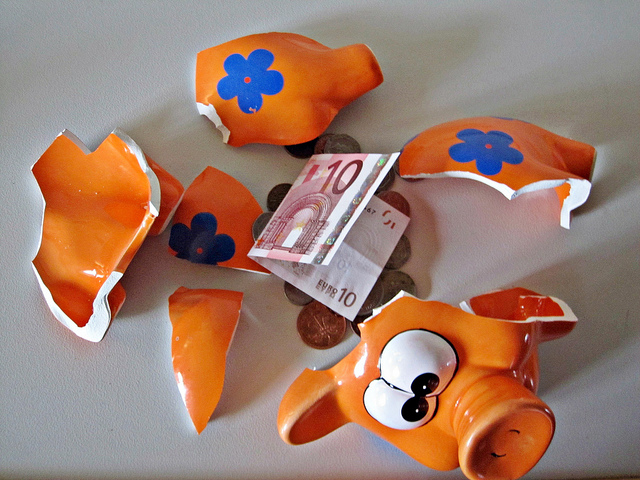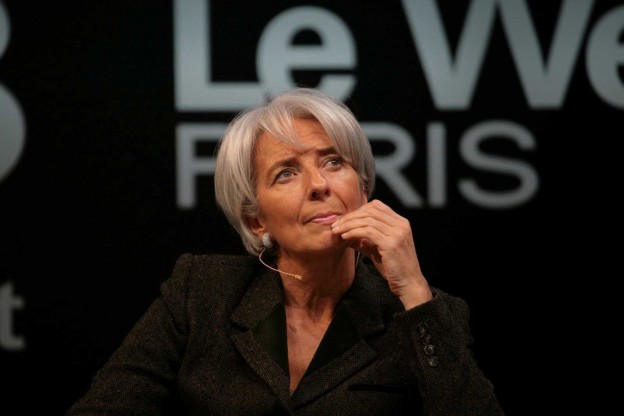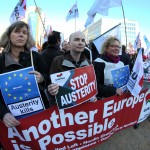Here’s today’s ‘Just A Minute’ bringing you a 60 second summary of what’s happening in the financial markets:
Main Trading Event Of The Day: U.S. Core Durable Goods @ 12.30 GMT
WHAT WE’RE WATCHING TODAY
IMF Cuts Global Growth Outlook For 2014
The International Monetary Fund has downgraded its global growth forecast for 2014 based on a weaker than expected first quarter, most notably in the U.S. and a less optimistic outlook for several emerging markets. The global economy is expected to expand 3.4 percent this year, a decline of 0.3 percentage points from April’s estimate, but still an improvement from 3.2 percent in 2013.
The IMF cut its 2014 growth outlook for the U.S. by 1.1 percentage points to 1.7 percent on the basis that while a rebound is underway, it is only expected to provide a partial offset to the weak first quarter outcome given a muted recovery in investment. The U.S contracted at an annual pace of 2.9 percent in the first three months of the year, the sharpest decline in five years, owing to a weak housing market, a slower pace of restocking by businesses and lower exports.
Growth in the euro zone is expected to strengthen to 1.1 percent, from a 0.4 percent contraction last year but the recovery will remain uneven across the region, reflecting continued financial fragmentation, impaired private and public sector balance sheets, and high unemployment in some economies. The IMF downgraded its overall growth outlook for emerging markets to 4.6 percent, from an earlier 4.8 percent and down from 4.7 percent in 2013. With somewhat stronger growth expected in some advanced economies next year, the IMF maintained its 2015 global growth forecast of 4.0 percent.
Japan Inflation Slows In June
Japan’s inflation slowed in June, highlighting the task the bank faces in reaching the bank’s target. Consumer prices excluding fresh food rose 3.3 percent from a year earlier after a 3.4 percent gain in May. The increase matched economists’ projections. Kuroda has said inflation will ease in coming months before accelerating later this year toward the BOJ’s 2 percent goal, which strips out the effects of a sales-tax increase in April. As the impact of the yen’s slide on prices fades, some economists say the central bank may add stimulus should price gains drop below 1 percent, a level Kuroda forecast they wouldn’t break. The BOJ estimated the 3 percentage point increase in the sales levy added 2 percentage points to core inflation in May. The yen has strengthened about 3.5 percent against the dollar this year after a 18 percent decline in 2013 raised prices of imported energy and other goods. The Japanese currency rose 0.1 percent to 101.76 while the Topix index of stocks rose 0.4 percent to extend its weekly advance.
Gold Heads For Second Weekly Loss On Strong Data
Gold retained sharp overnight losses to trade near a five-week low on Friday and headed for a second straight week of losses as strong global economic data offset the metal’s safe-haven appeal. Gold’s decline despite tensions in the Middle East and Ukraine does not fare well for prices in the short term, especially as physical demand in Asia is sluggish. Spot gold was little changed at $1,292.10 an ounce after losing nearly 1 percent on Thursday. The metal hit $1,287.46 in the previous session, its lowest since June 19 before recovering slightly. Gold has lost 1.4 percent of its value this week. Gold came under pressure after data on Thursday showed the number of Americans filing new claims for unemployment benefits fell to the lowest level in nearly 8 1/2 years last week, suggesting the labour market recovery was gaining traction.
That sums up today’s highlights! Don’t forget to keep in touch with us via our Facebook, Twitter, Google+ & LinkedIn pages for all the latest trading developments of the day. We hope you have a profitable day on the markets.


